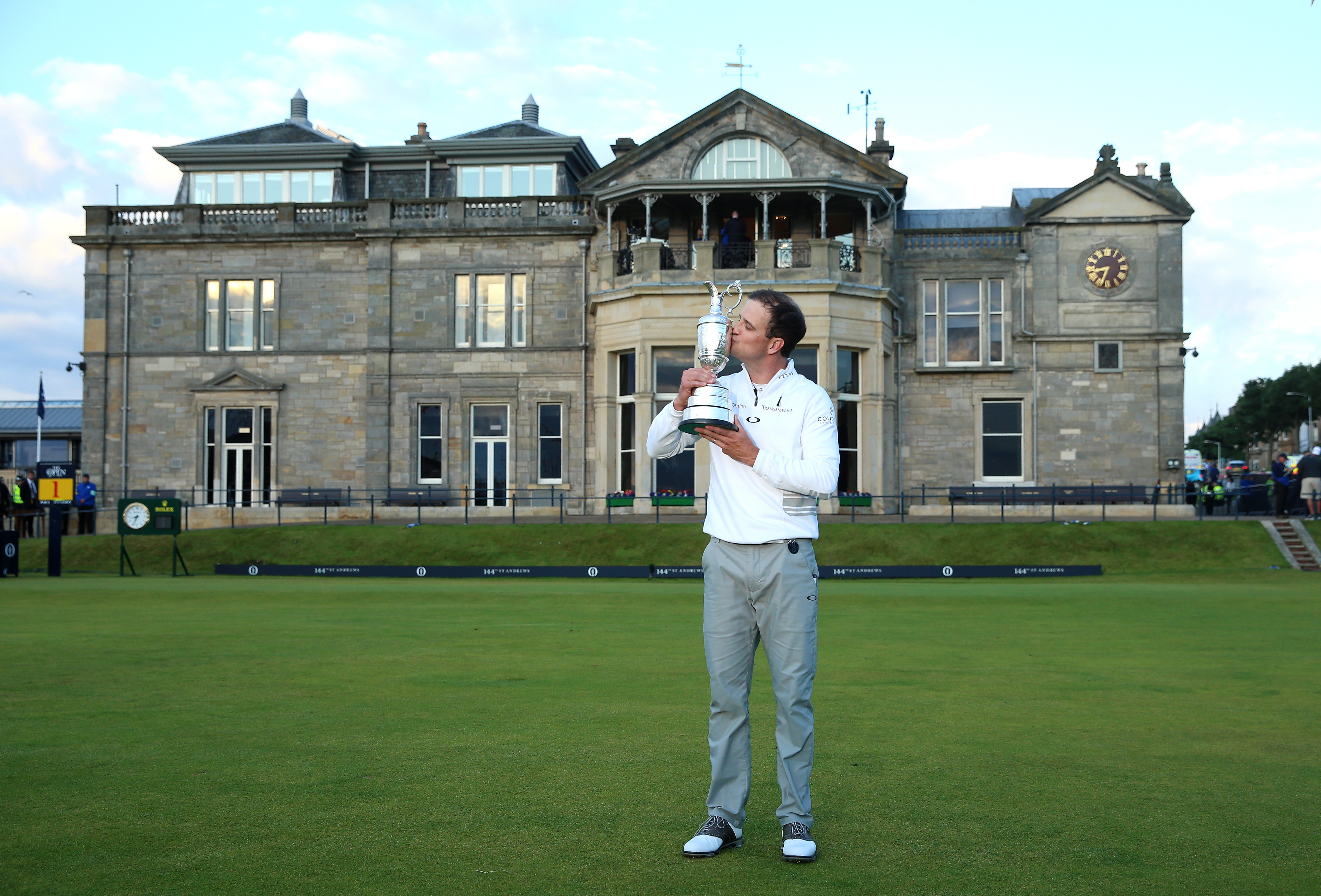ST. ANDREWS, Scotland – I still can’t decide what was the coolest piece of memorabilia on display at the R&A Clubhouse.
Was it the original oil paintings hanging on the walls? The prized silver Claret Jug that will be awarded to the Champion Golfer of the Year? Or the original Alister MacKenzie sketch of The Old Course surveyed and depicted in 1924? All spectacular and part of the rich history of the game, but then you see the original Challenge Belt that was awarded to the winner of the Open Championship from 1860-1870 until Young Tom Morris won the belt outright by winning the event three times in succession — that’s next level.
Welcome to The Royal & Ancient Clubhouse, situated behind the first tee of the famed Old Course, and an iconic building whose exterior is known instantly to golfers around the world. Arnold Palmer once described it as “being admitted to the Hall of the Gods,” and thanks to Golfweek rater and club member Derek Dobbs, I received a grand tour of the facility, which was originally built in 1854 in the Georgian style of the day.
Dobbs joined the private club, with approximately 2,500 members worldwide, in 1989, or as he put it, “long enough ago to know my way around.” He usually comes over and plays once a year. (He’s also a member at Royal Dornoch #Jealous.)
Jacket and tie are required for entrance and sadly no photos or video are allowed. In the main lobby is a cabinet that houses many of the most prized trophies in golf – from the Amateur and Ladies Amateur Trophy to the Claret Jug itself. There are two versions – the one awarded custody for a year to the Champion Golfer of the Year and the one I studied intently, which never leaves the grounds and was last given to Bobby Jones when he won in 1927, and didn’t want to risk taking it home to America.
On to the Trophy Room, where my eyes were drawn to the silver balls and led to Derek sharing the back story of an infamous club tradition. Every year since 1754, the new captain hits the ceremonial drive from the first tee and the local caddie who retrieves it is awarded a prize. A silver casing of the ball is then attached to the cluster hanging from a silver putter like grapes on a vine. (Captains of royal birth — there have been four — have gold balls.) Later that evening, at a dinner, new members are required to touch this ornament to their lips and kiss the captains’ balls.
The Big Room, the main social room on the ground floor, presents floor-to-ceiling bay windows and a stunning view of the first tee. We sat and watched Trey Mullinax and others tee off and had a drink. The room is adorned with paintings of Queen Elizabeth II, Sir Michael Bonallack, the five-time British Amateur champion, and Old Tom Morris. To have a locker in this room, you must have been a member for 50 years.
Interestingly, members do not otherwise have their own lockers; rather, they find an empty one and pay a pound for its use. They’ve thought of most everything including a room for drying clothes in the locker facilities.
On November 30 or St. Andrews Day, the clubhouse is open to the public to take a tour of the ground floor, and I would encourage anyone to do so. But you’ll need a member to accompany you upstairs.
The walls heading up the staircase show off an impressive art collection that is rotated regularly. There were original oil paintings of The Great Triumvirate — Harry Vardon, John Henry Taylor and James Braid, the three leading British golfers of the late 19th and early 20th centuries — of Francis Ouimet, the American who won the 1913 U.S. Open at The Country Club and was R&A Captain in 1951, and a painting of the 2003 annual meeting when Prince Andrew was named Captain. Past Open champion Peter Thomson and course architect Robert Trent Jones Jr. were easy to pick out in the painting. Staff members were setting up for lunch as I admired the birds-eye-view of the first tee.
The clubhouse is a museum piece housing museum pieces from the great game. With chamber upon chamber of ancient hickory putters, mashie-niblicks, brassies and cleeks, you wonder why there is a need for the British Golf Museum across the street. Here are housed so many priceless antiquities such as Old Tom Morris’s baffy spoon and Allan Robertson’s rut iron, circa 1850. These clubs were crafted by true craftsmen but are so primitive that they look better suited for gardening. There’s a wall of unusual clubs as well, including a rake niblick, and the evolution of the golf ball from feather ball (1840), gutty ball (1890) and even a leather ball (1943) in the Billiards Room.
The list of honorary members, which already included the likes of former Open champions Jack Nicklaus, Gary Player, Tom Watson, Lee Trevino and Tony Jacklin, grew by three this week with Tiger Woods, Rory McIlroy and Paul Lawrie. As I made my way downstairs again, I spied a small wooden box with a slot cut out of the top. Tucked away on a table, it read, “Letter of support for candidates.”
Excuse me while I stuff it full.

